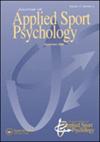青少年情绪智力训练项目参与强化训练中心
IF 2.7
2区 心理学
Q2 HOSPITALITY, LEISURE, SPORT & TOURISM
引用次数: 1
摘要
本文章由计算机程序翻译,如有差异,请以英文原文为准。
Emotional intelligence training program for adolescents involved in intensive training centers
Abstract This study aimed to design and evaluate an emotional intelligence (EI) training program for adolescents involved in intensive sport training centers. A total of 31 young elite table-tennis players received EI training through six sessions and a recall period across a competitive season. The athletes completed (1) a self-reported questionnaire at the beginning and at the end of the program to assess intra-individual and inter-individual EI; and (2) a logbook twice a month during a period of 6 months including emotion regulation strategies (ERS), cognitive appraisals, and discrete emotions. The results highlighted an increased level of intra-individual EI, especially for understanding and regulation dimensions. Moreover, multilevel growth curve analyses (MGCAs) revealed adaptive changes for the reported levels of acceptance, refocus on planning, positive reappraisal, average less-adaptive ERS, self-blame, and catastrophizing strategies. These findings support a beneficial effect of the program on ERS. However, the analyses revealed limited results for discrete emotions. Finally, MGCAs also revealed adaptive trajectories in the scores of cognitive appraisals and thus provided further evidence of the benefits of the EI program on threat, challenge, and loss levels. In sum, this interventional study adds to a growing body of EI literature by proposing a theoretically based intervention for adolescents involved in a competitive and emotionally demanding environment. Lay summary: The emotional intelligence is now recognized as a crucial factor to success in competitive sport. It appears crucial to develop these competences among youth athletes which are exposed to various constraints. This study confirms that the emotional intelligence (as some emotion regulation strategies) can be improved with short and adapted interventions.
求助全文
通过发布文献求助,成功后即可免费获取论文全文。
去求助
来源期刊
CiteScore
6.90
自引率
9.40%
发文量
39
审稿时长
>12 weeks
期刊介绍:
The Journal of Applied Sport Psychology (JASP) is a refereed journal designed to significantly advance thought, theory, and research on applied aspects of sport and exercise psychology. Submissions such as experimental studies, qualitative research, correlational studies, case studies, position papers, critical reviews, theoretical developments specific to applied research conducted in sport and/or exercise settings, or having significant applied implications to sport and exercise, are appropriate content for the JASP. Please see the recent Editorial for further details on the aims and scope of the journal. JASP is a non-proprietary journal that is an official publication of the Association for Applied Sport Psychology (AASP). The purpose of AASP is to promote the development of psychological theory, research, and intervention strategies in sport and exercise psychology. The Journal is a direct benefit of membership in AASP and is received by its student and professional members. The publisher of the JASP is Taylor and Francis, Inc. of Philadelphia, PA.

 求助内容:
求助内容: 应助结果提醒方式:
应助结果提醒方式:


